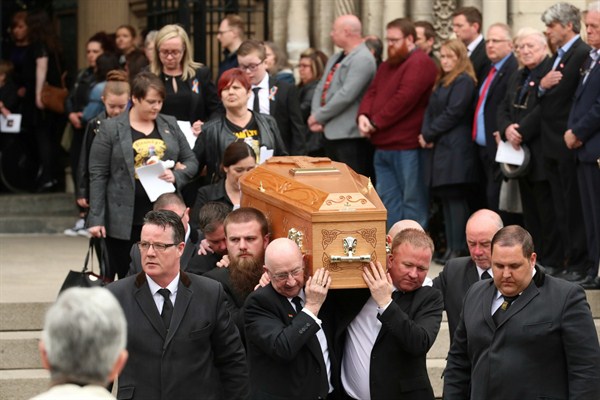Last month, journalist Lyra McKee was fatally shot during a riot in Londonderry, Northern Ireland. A group calling itself the New Irish Republican Army took responsibility for the killing, a troubling reminder of the three decades of political violence known as the Troubles. That conflict, in which Catholic republicans seeking a united Ireland fought with Protestant unionists who wanted to remain a part of the United Kingdom, was brought to an end by the Good Friday Agreement in 1998. But now, the looming specter of Brexit threatens to reverse many of the gains made in the peace process. In an email interview with WPR, Peter McLoughlin, a lecturer at Queen’s University Belfast and a Fulbright scholar at Boston College, discusses the history of militant republicanism in Northern Ireland and how Brexit could undermine the political and economic conditions created by the Good Friday Agreement.
World Politics Review: How much of a security threat does the New IRA pose, and how has it maintained a base of funding and support?
Peter McLoughlin: The term “New IRA” is probably a little misleading. It’s more of a label coined by the media to describe the most recent manifestation of a broader political tendency known as “dissident republicanism.” This describes a range of paramilitary groups in Northern Ireland that still adhere to the traditional Irish republican belief that only violent revolution can achieve a united Ireland. These groups dissent from the mainstream republican movement, which essentially abandoned armed struggle and adopted a political approach to Irish reunification through the peace process, most notably in the Good Friday Agreement.

